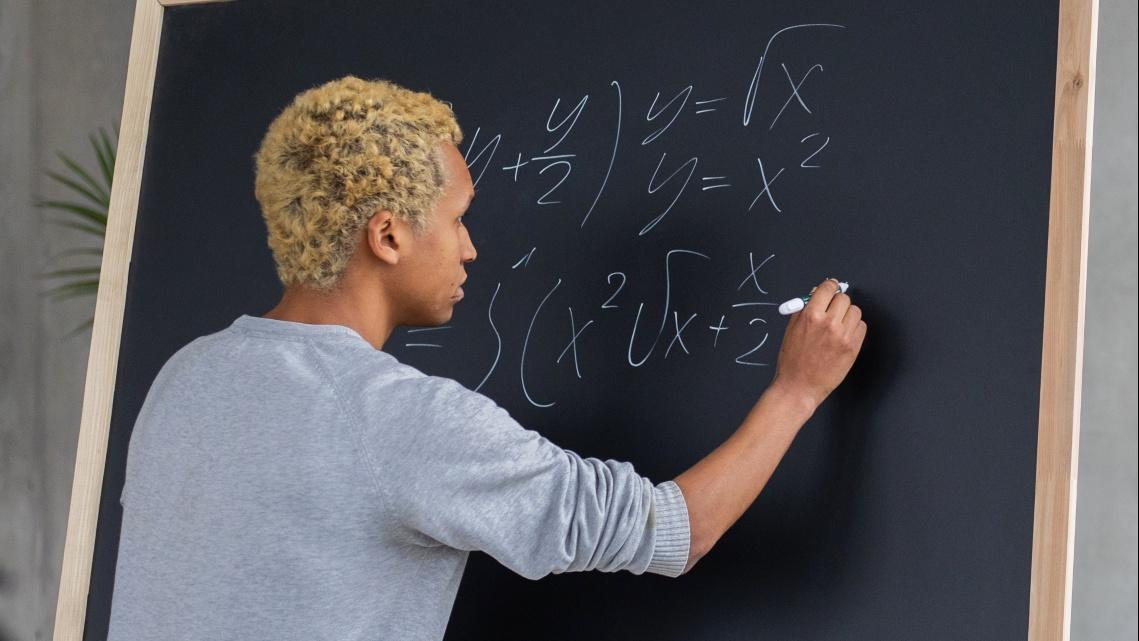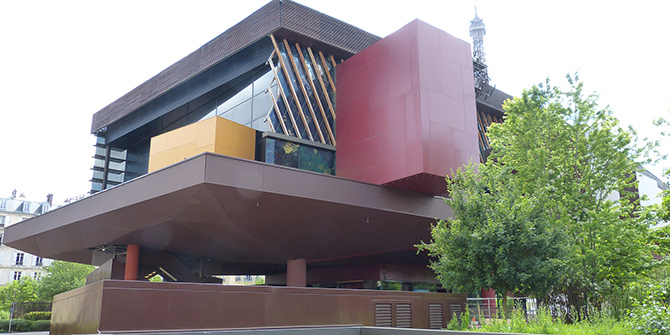For the last four years, France has strengthened its partnerships with African countries through academic cooperation. This has opened up opportunities to train highly-skilled professionals on the continent and enabled partnerships between French universities and local enterprises. Cristina D’Alessandro argues that while the approach may be considered “higher education diplomacy,” its positive impact on African youths should not be overlooked.
On 28 November 2017, at the University of Ouagadougou in Burkina Faso, French President Emmanuel Macron announced the start of a new relationship with African countries, focusing on higher education. He indicated that he intended to double academic partnerships with Africa by encouraging French universities to set up campuses in Africa and contributing to developing academic curricula that respond to countries’ needs and expectations.
Since 2018, France has boosted projects in the academic field, supporting mutually beneficial mobility, academic partnerships for teaching and research purposes, and the development of digital libraries. In 2022, at least 11 ambitious academic initiatives, of which six are in Francophone countries, have been set up, for instance, the Africa Digital Campus at the Virtual University of Burkina Faso and the Franco-Ivorian Hub for Education.
Joint Research Opportunities
The French national agency for research (ANR) supports academic cooperation and finances joint research projects between French and African research teams. Specific calls for projects include the “Partnerships with African higher education,” managed by the ANR and financed by the French development agency (AFD). This call finances four-year joint projects between French and African universities engaged in strategic partnerships to scale-up new teaching programmes in Africa that focus on priority areas for development in specific countries or regions.
In addition, there are also thematic funding calls, such as the “Long-term Europe Africa partnership on renewable energy,” which funds research and innovation projects that enhance renewable energy production in Africa. Every project must have a minimum of four partners, including at least an enterprise and an academic partner. This call, therefore, attempts to create synergies between research and private sector needs in terms of professional skills.
Promoting the mobility of African students to France and creating campuses in Africa
Campus France, the French agency devoted to international university mobility, facilitates the mobility of African students to France with scholarships. As a result, the number of African students in France grew to 82,994 in 2021. The agency operates to make French universities known to African students, with events held in West Africa (Senegal, Cote d’Ivoire, Ghana), Tanzania and Madagascar.
“Study in France,” a mechanism simplifying the procedure for foreign students moving to France, is based on partnerships with 66 countries in 2022, including 27 African countries (21 of which are Francophone).
Efforts have also been made to attract French students to African universities. A leading institution like Sciences-Po, a university only accessible through a competitive exam (originally devoted to training high-level public servants), has gone from having three partner universities in Africa in 2009 to 19. This will see an increase in the number of French students studying at African universities through exchange programmes.
Given the growing demand for professional training on the continent, leading French universities have created several African campuses. The Ecole Centrale de Lyon, one of the oldest French engineering universities, created campuses in Morocco, Mauritius, and Cote d’Ivoire. The Haute Ecole de Commerce de Paris, a top university in business and public management, has opened campuses in Cote d’Ivoire, Benin, Cameron, Gabon, Ghana, Nigeria, Kenya, Senegal and Togo. This will help to establish partnerships with local enterprises and enable students from these countries to access professional training programmes that will enhance their knowledge and capacities.
Creating campuses abroad in selected African countries could be considered “higher education diplomacy”, which is a form of soft power that uses academia as a channel to consolidate French interests and presence in Africa. However, it must be underlined that these efforts are key contributions to tackling African youth unemployment.
The sixth European Union-African Union Summit in February 2022 emphasized the urgent need for a “New Deal” between Europe and Africa. This means a new way of doing business together- through partnerships as equals, based on mutual interests. Indeed, during an event hosted at the AFD the day before the Summit, French President Emmanuel Macron and Senegalese President Macky Sall set the tone for this “New Deal.”
Emmanuel Macron presented his vision. Surrounded by young African and French entrepreneurs and startups, he pointed out that public investment should be an enabler and encourage private sector investment on critical priorities for African countries, particularly where private investors do not want to take risks. Academic partnerships are a vital component of this vision, as they seek to address unemployment through training highly-skilled professionals who will be imperative for digital transformation and innovation.
In the long term, France seeks to promote a new vision of French diplomacy with African countries through greater foreign aid, renewed security ties and enhanced economic partnerships while strengthening its links with non-Francophone countries. The expansion of bilateral cooperation with Angola, Nigeria, South Africa, and Kenya witnessed between 2017 and 2020 was an important step in the right direction, but academic cooperation with Francophone partners remains easier and generally predominant.
It is impossible to fully assess, in 2022, if this “New Deal” will be a genuine policy approach or only political rhetoric, but it could nevertheless support and facilitate the implementation of Macron’s vision for cooperation between France and African countries.
Photo by Keira Burton: https://www.pexels.com






1 Comments